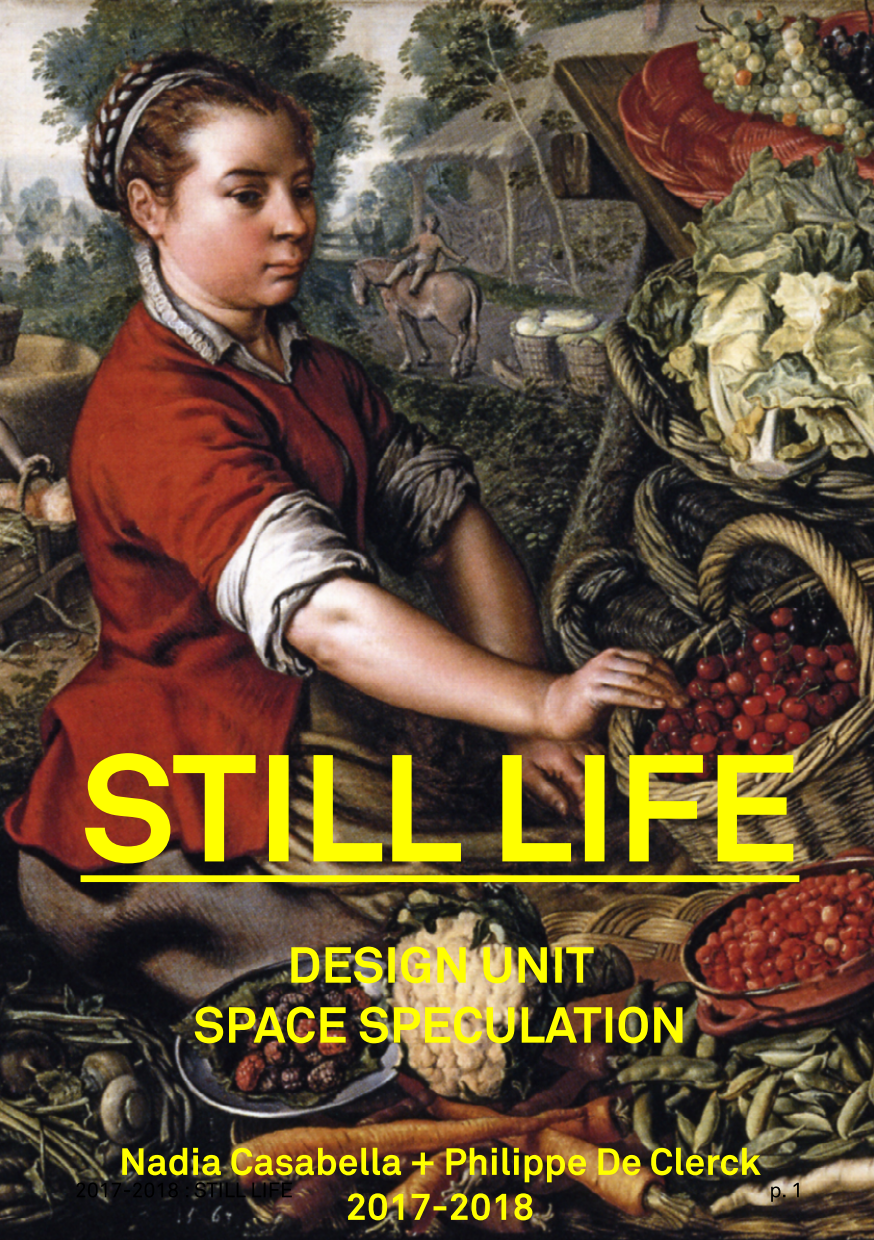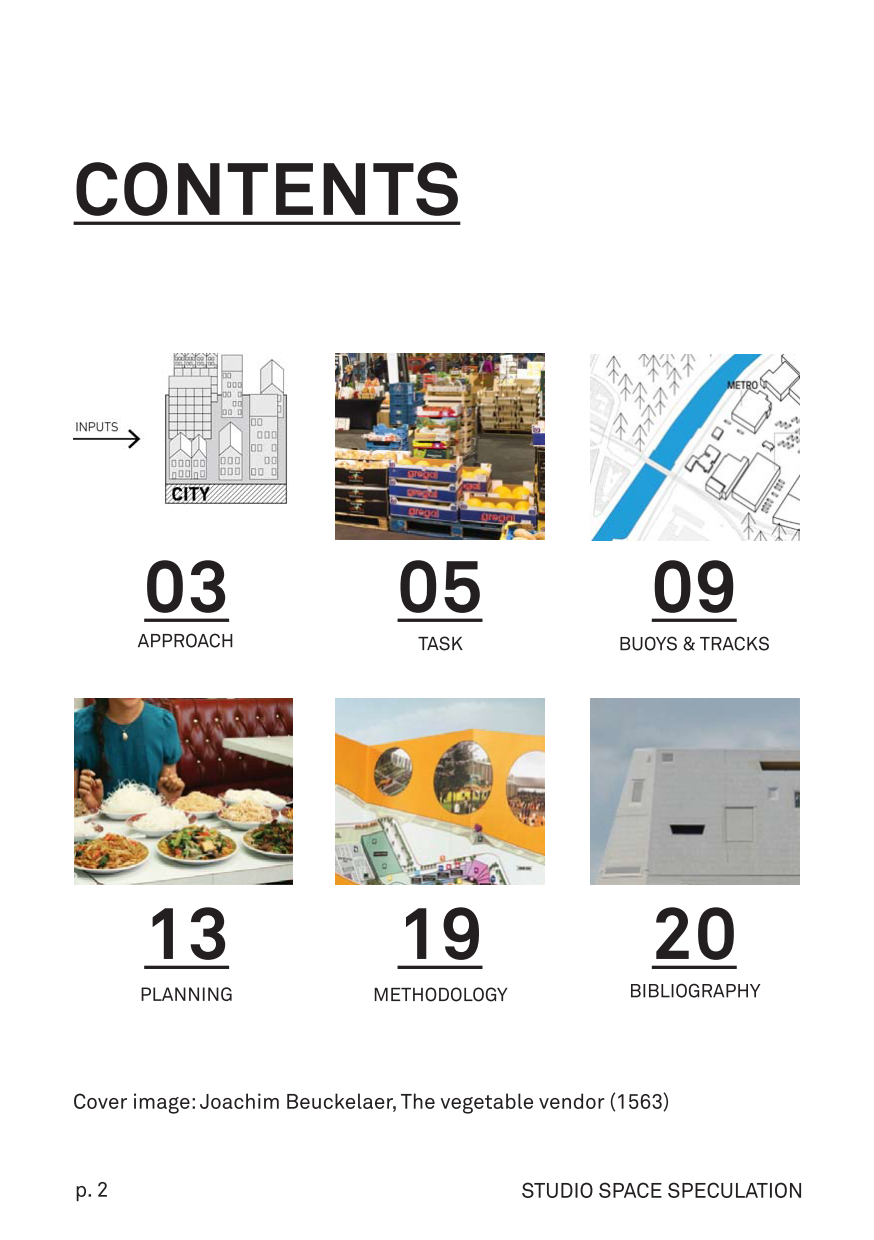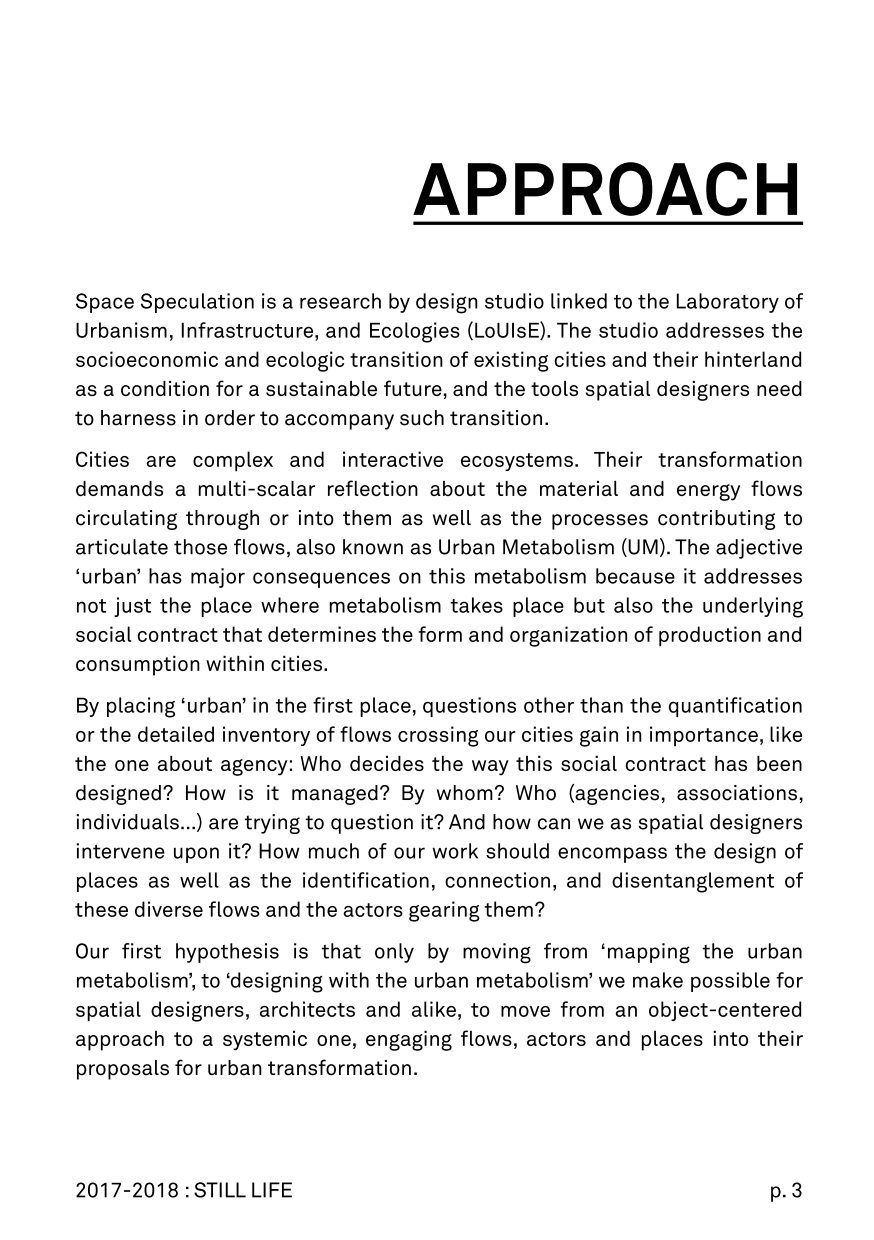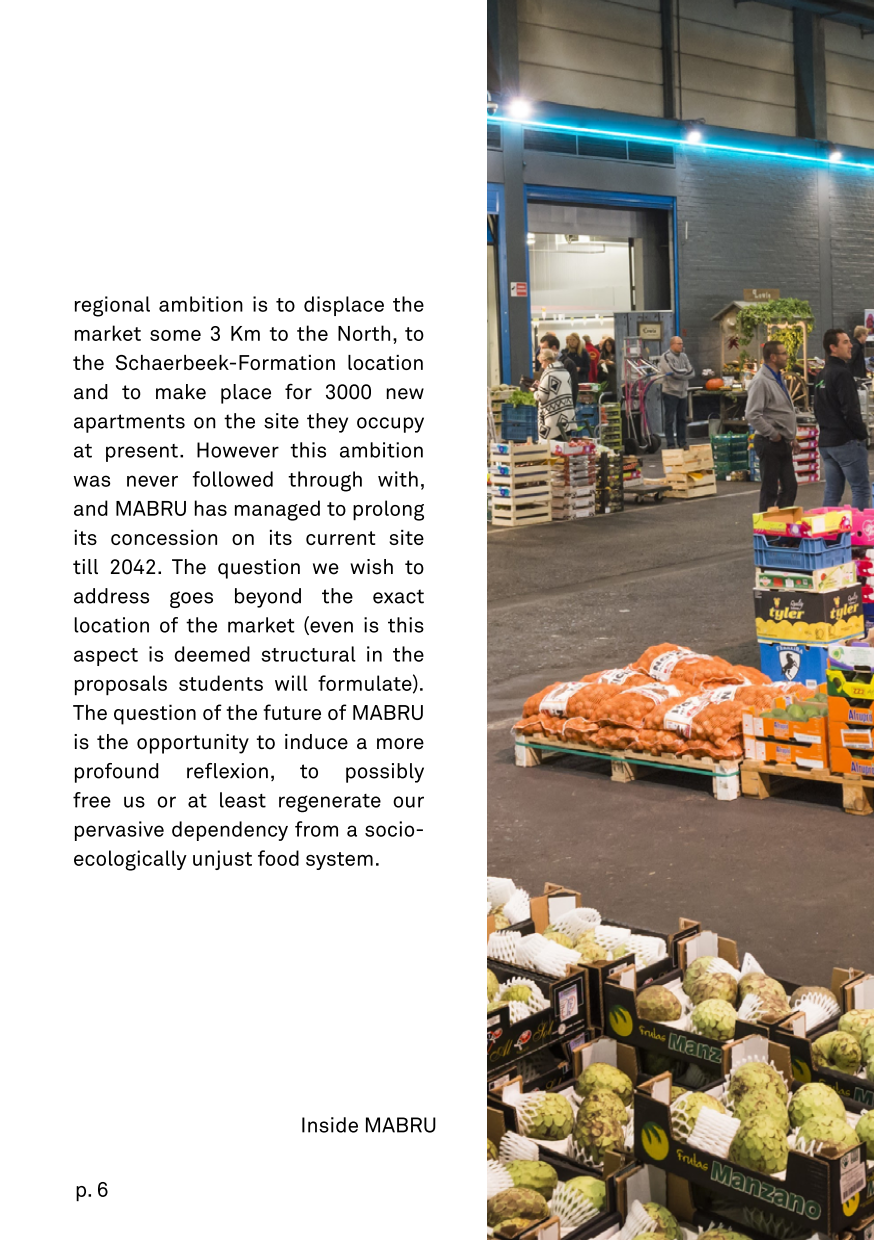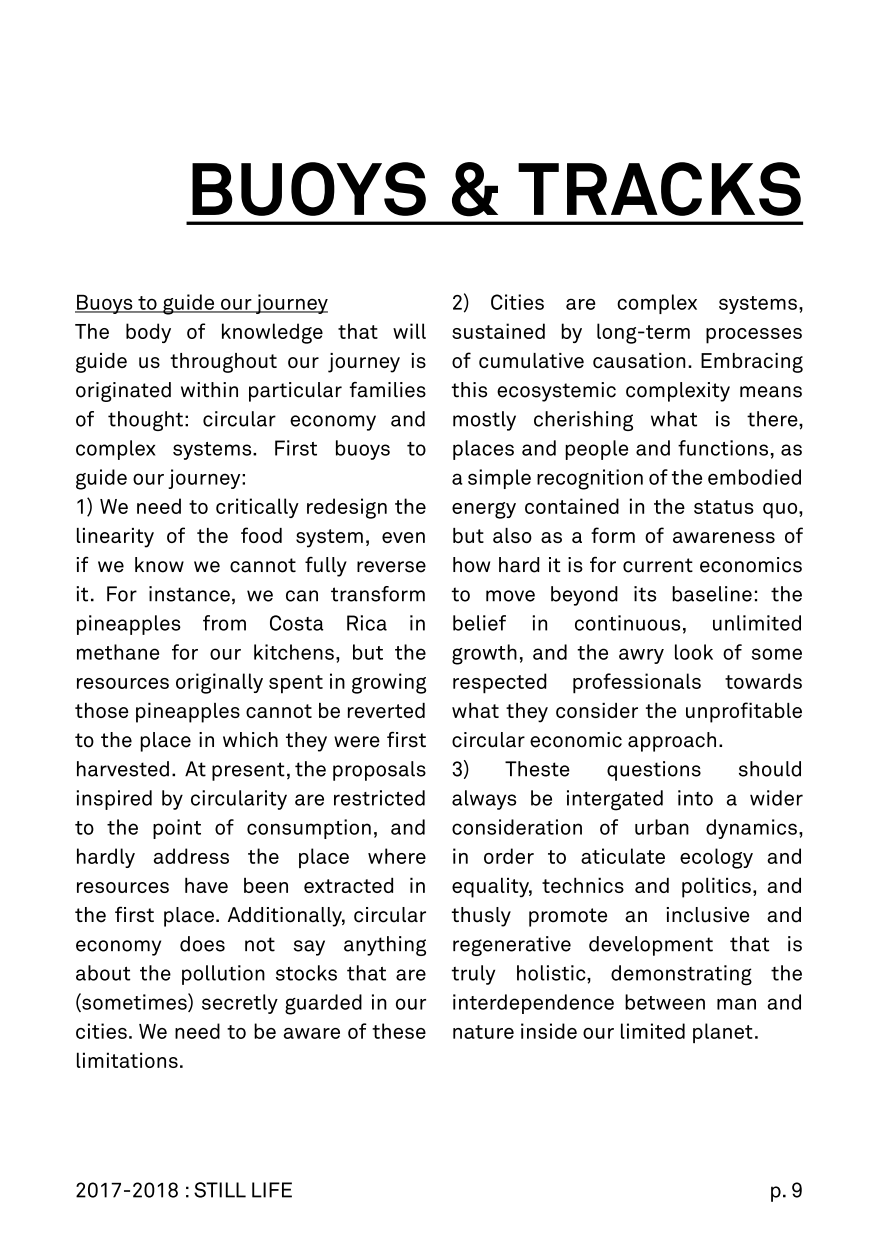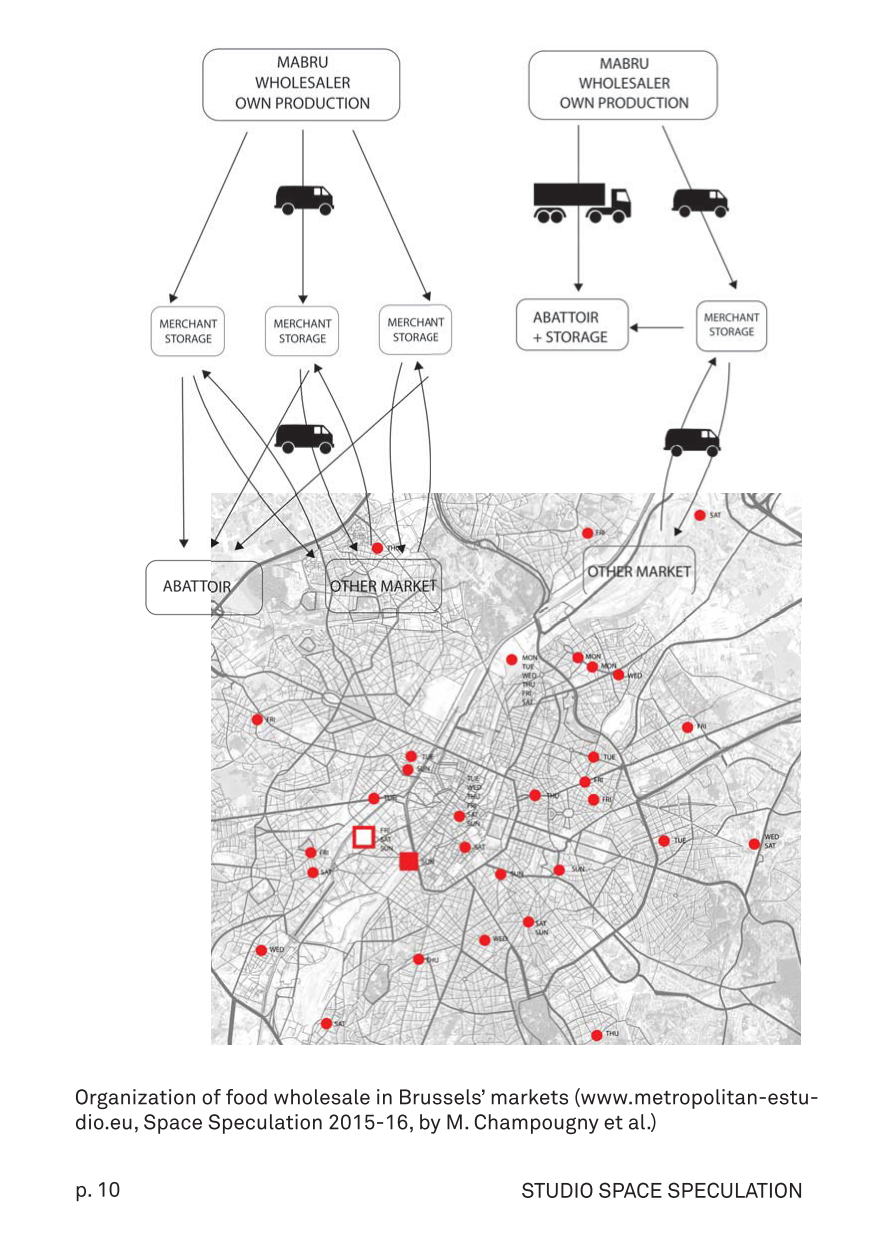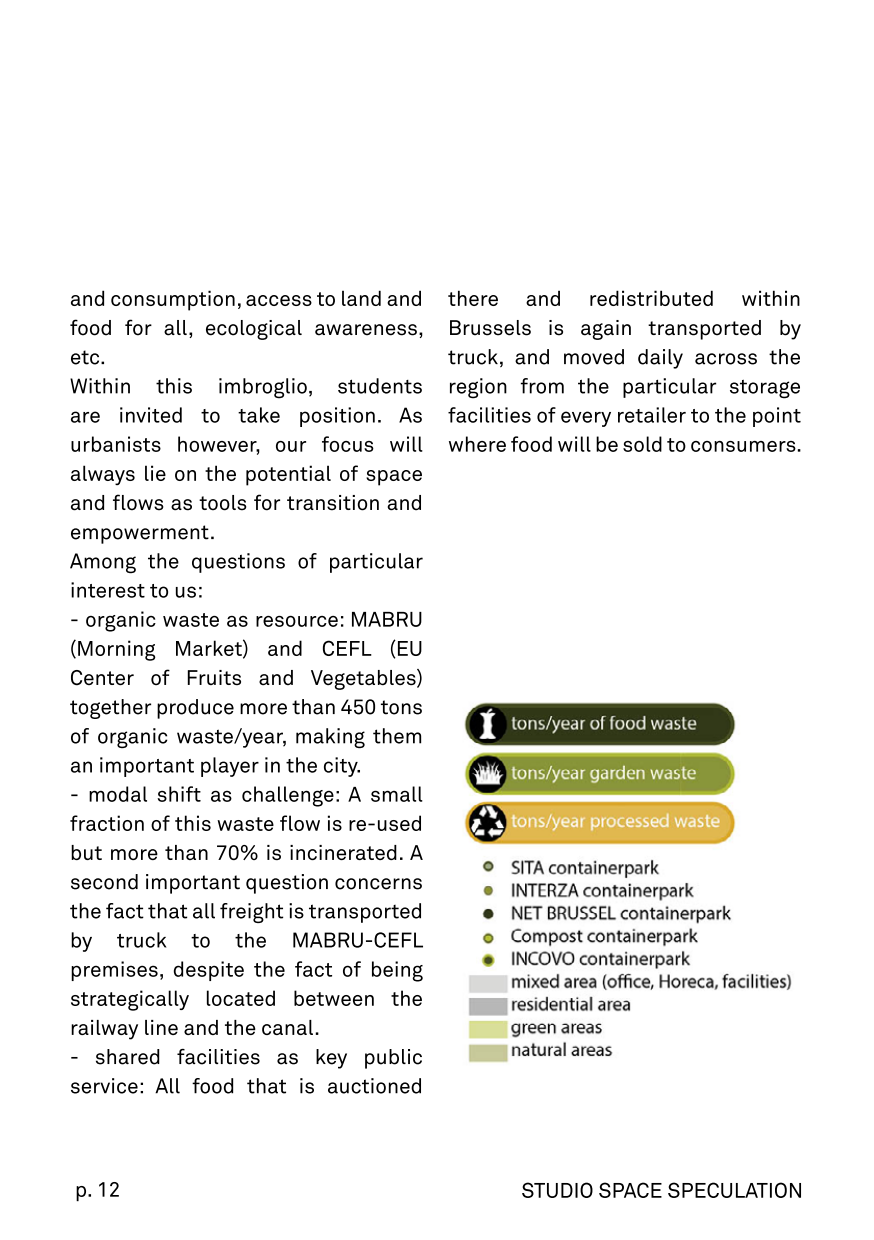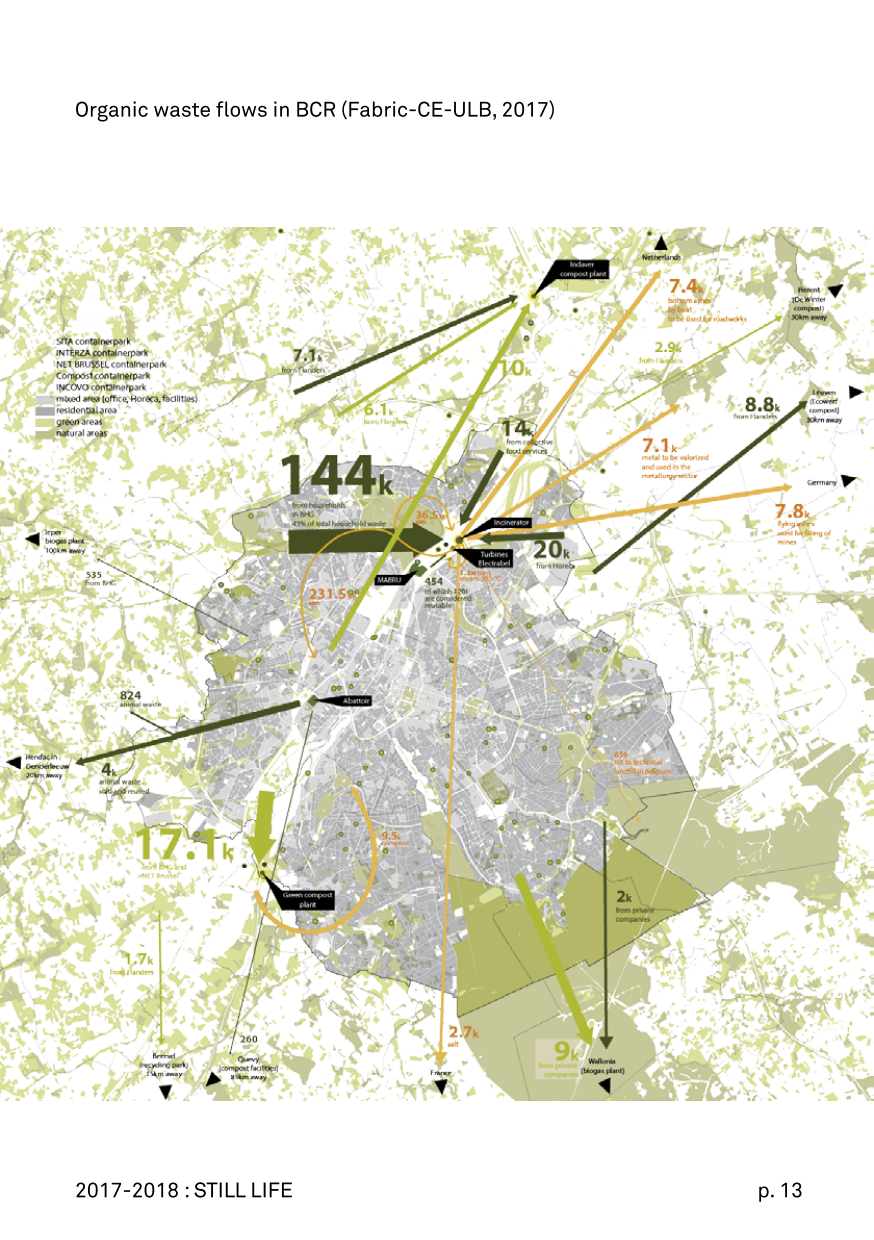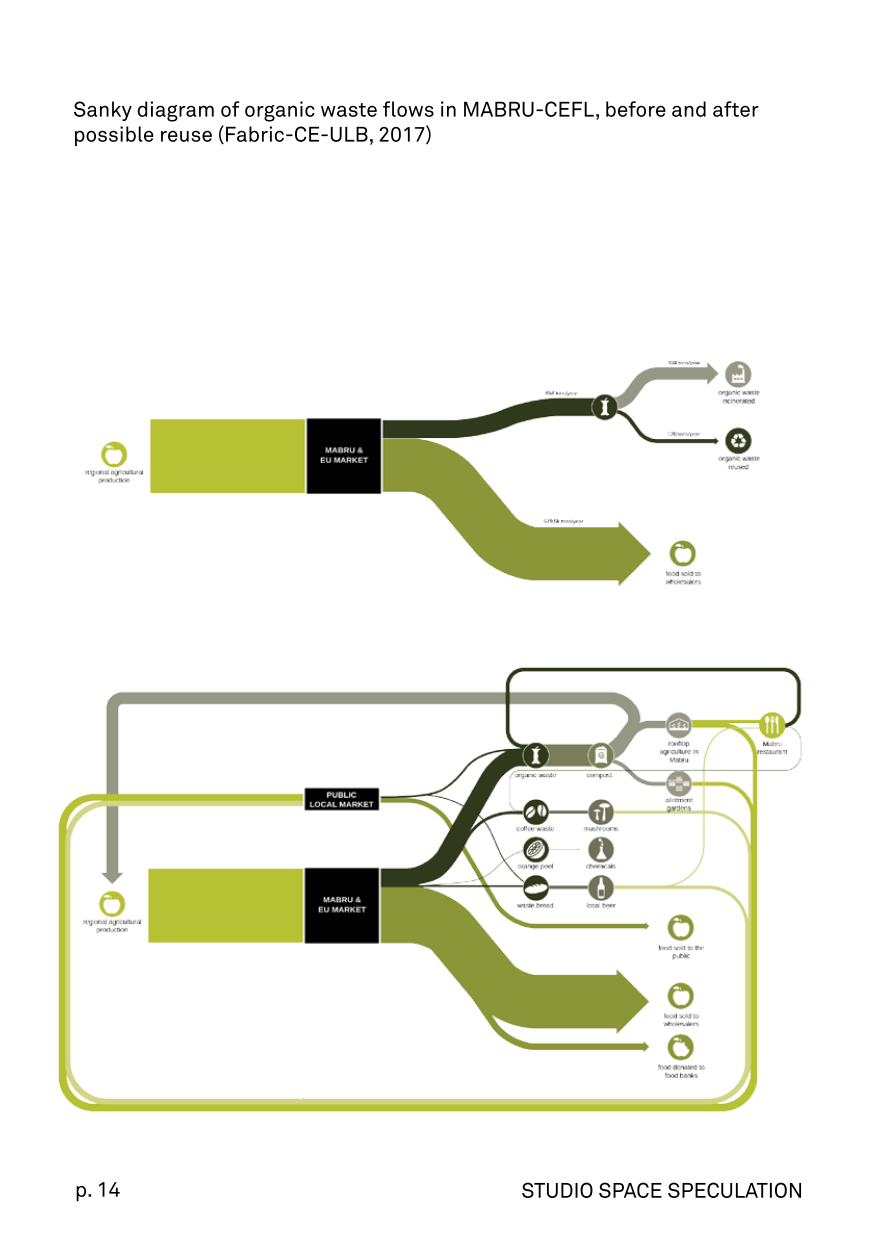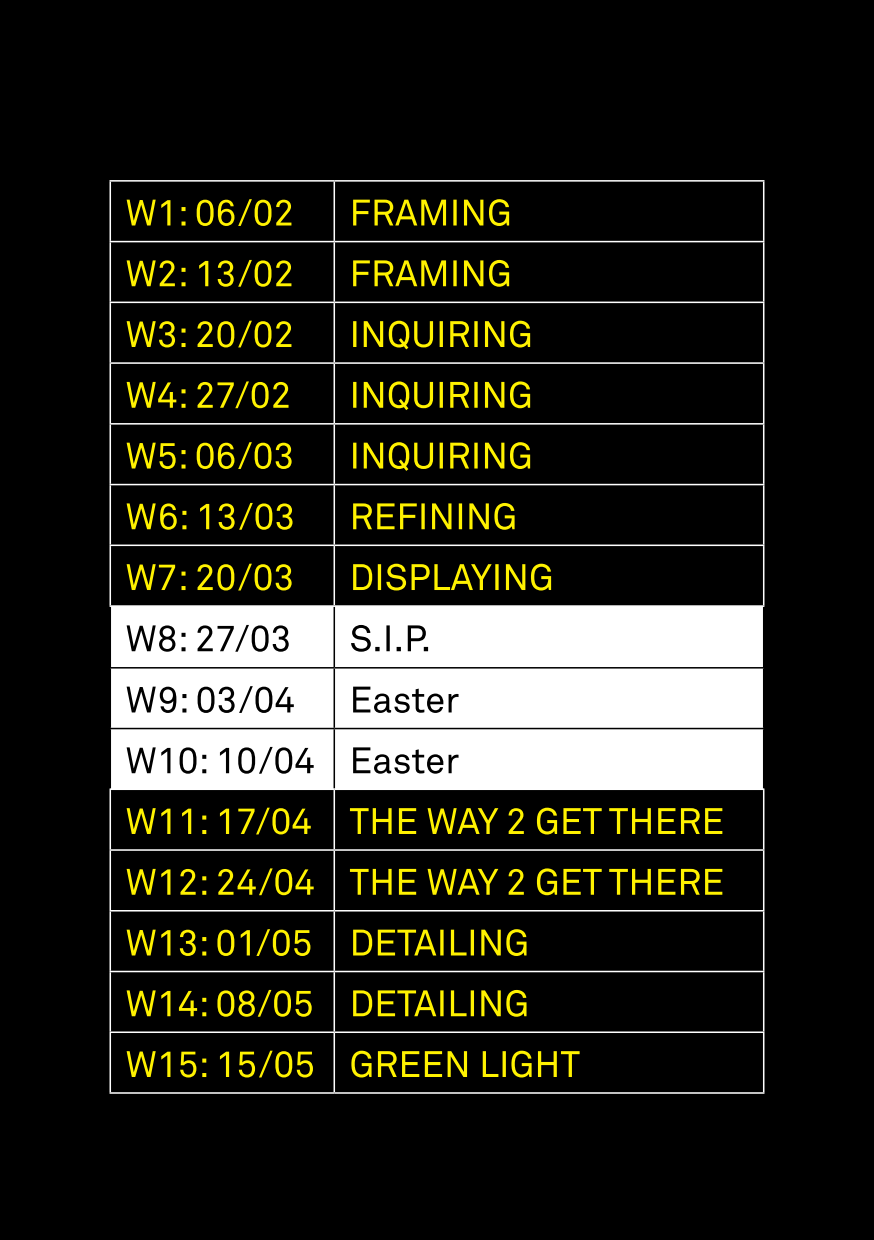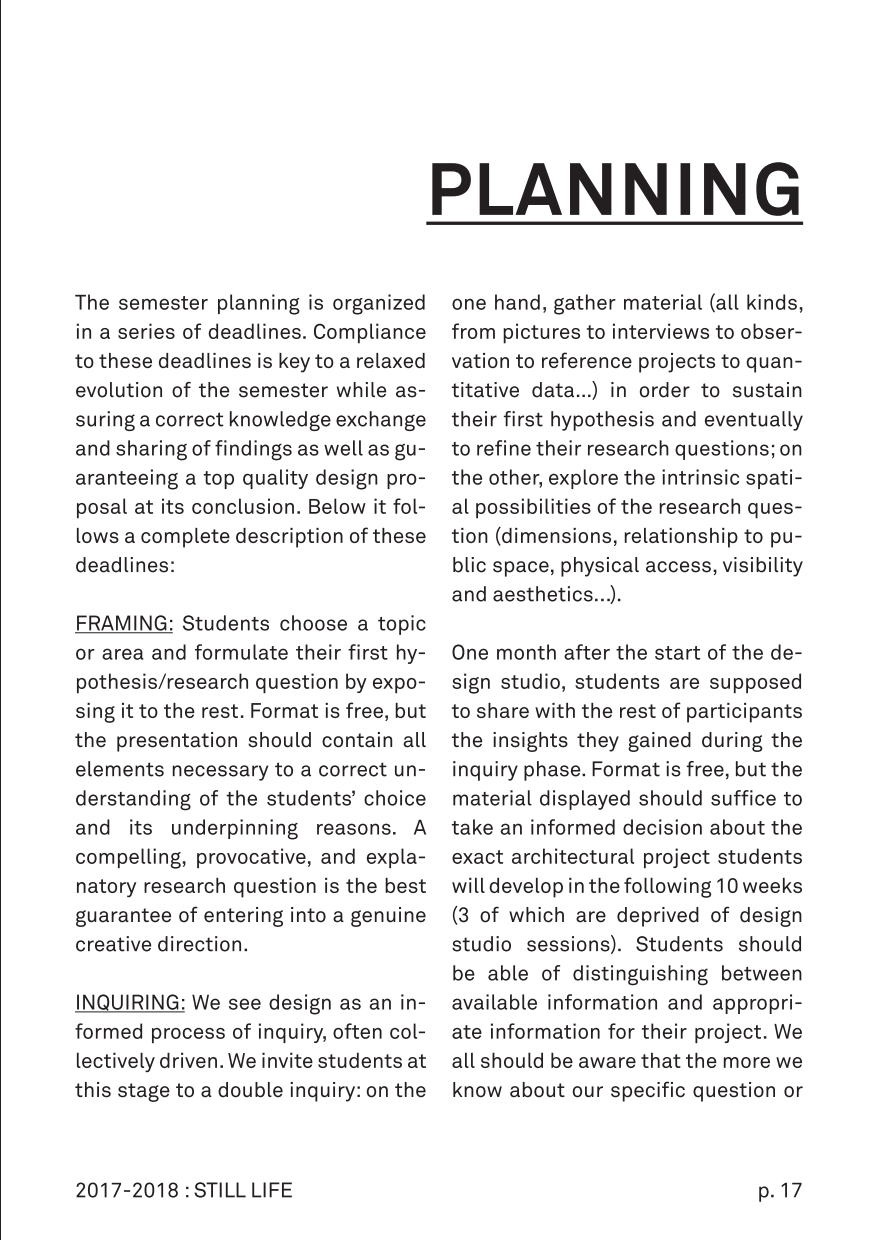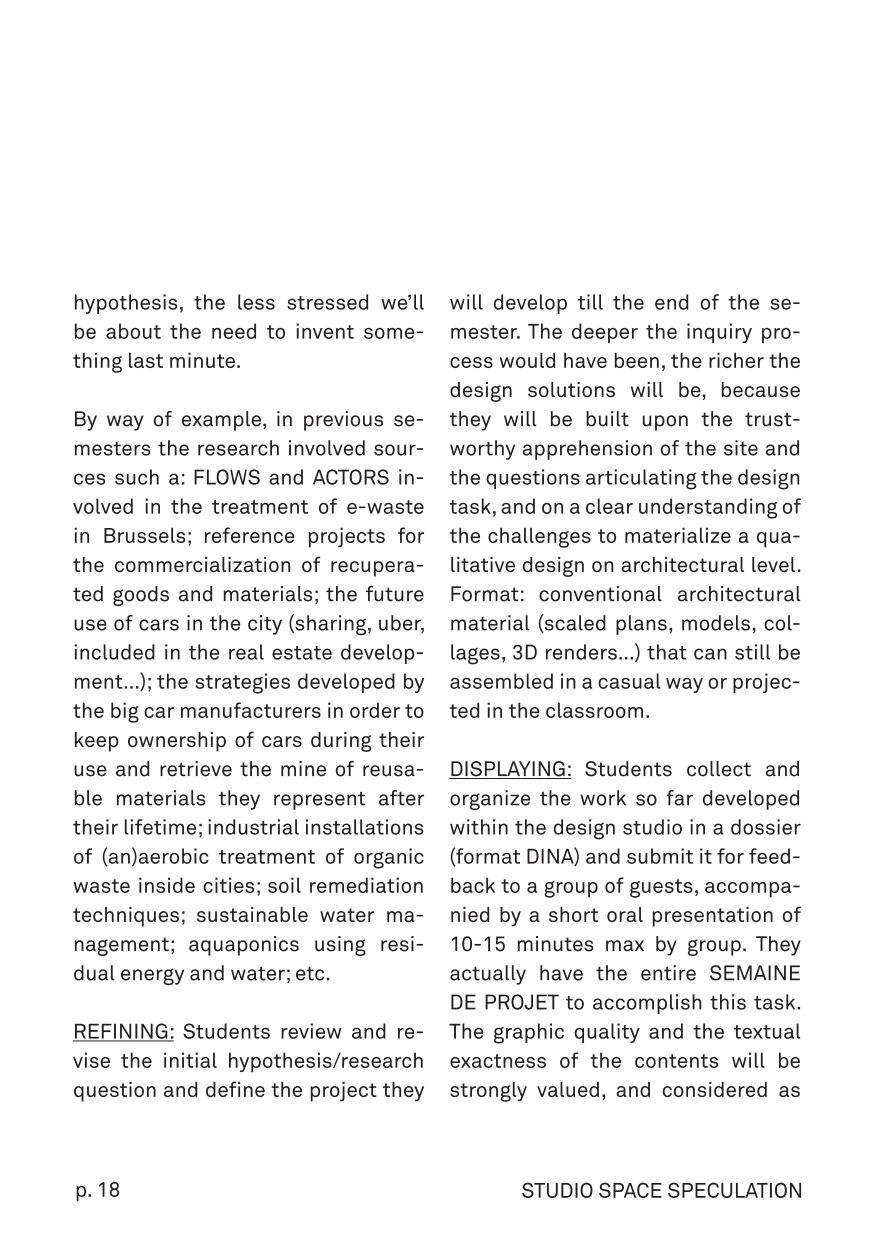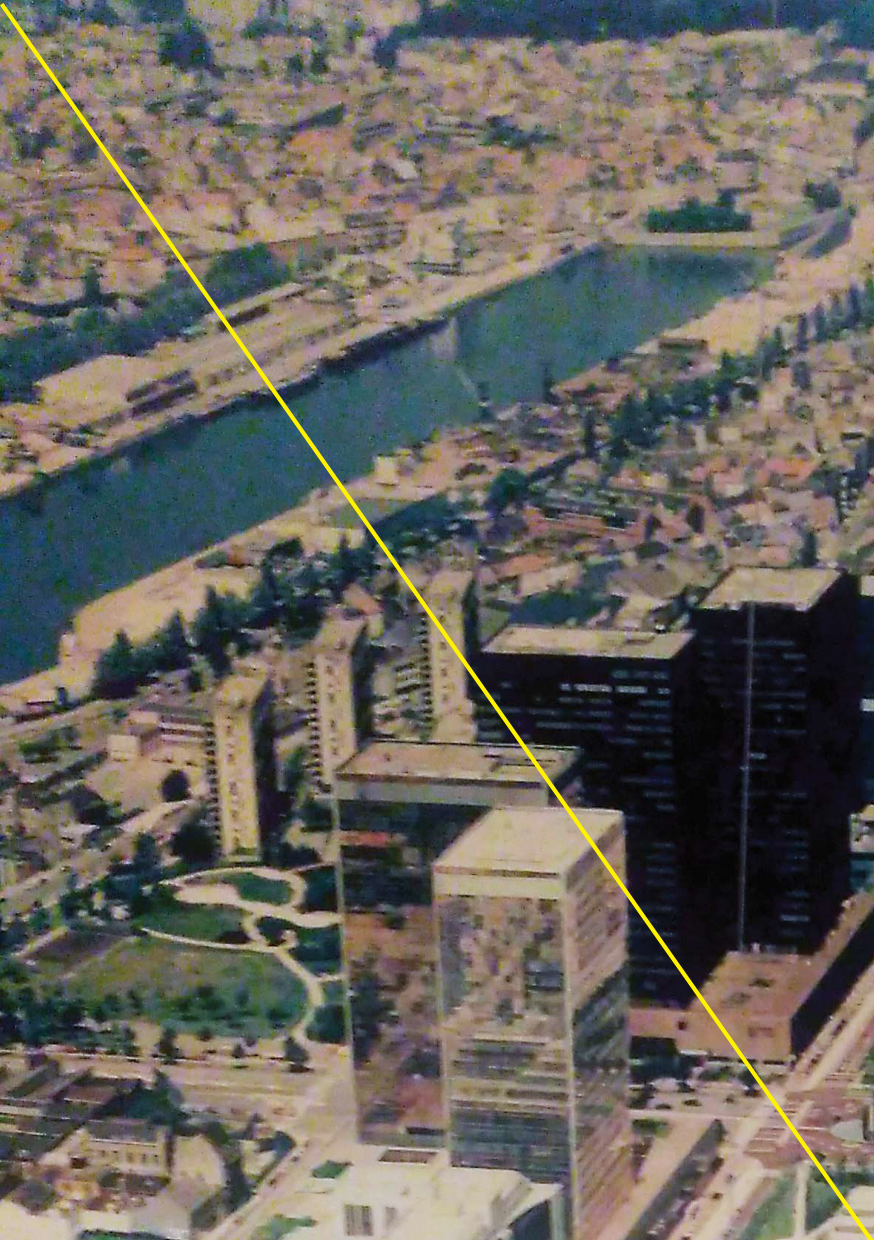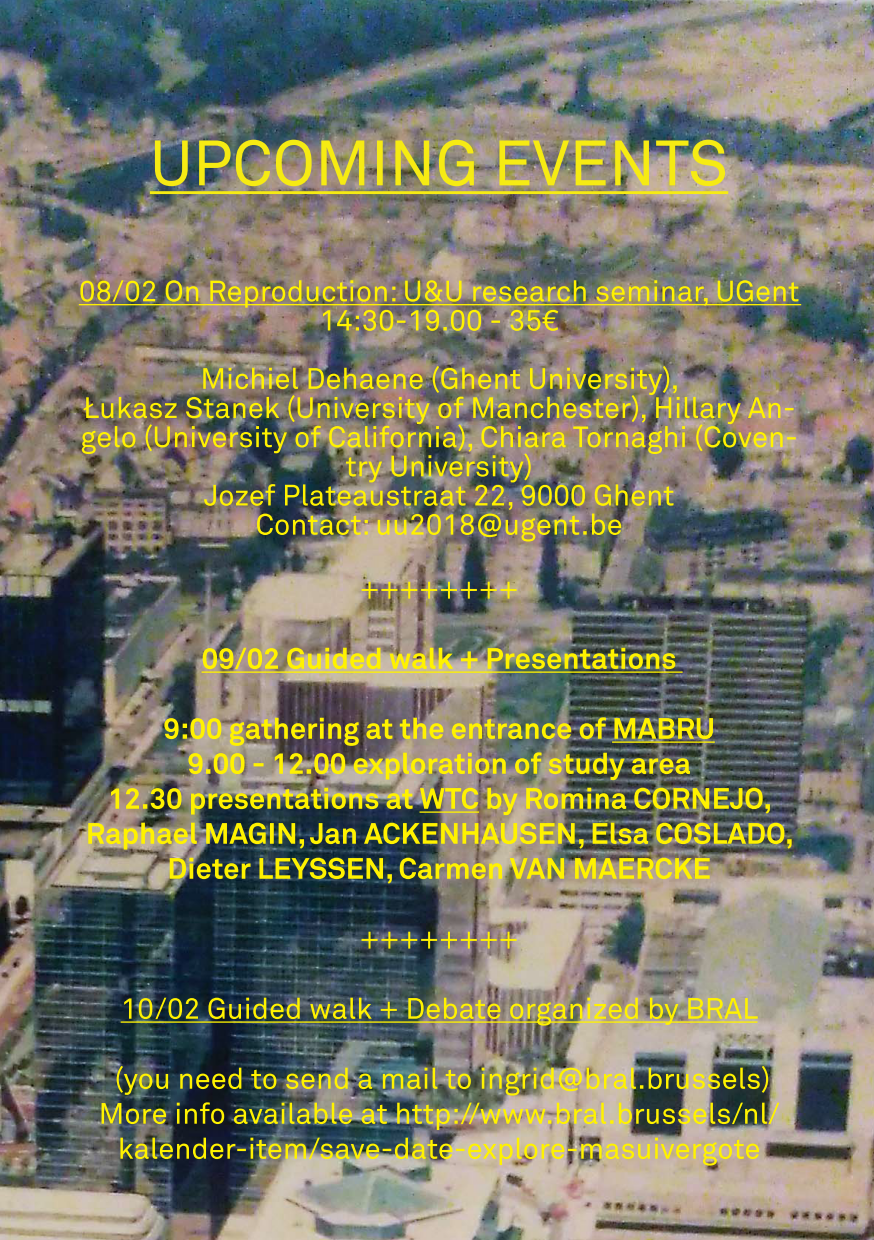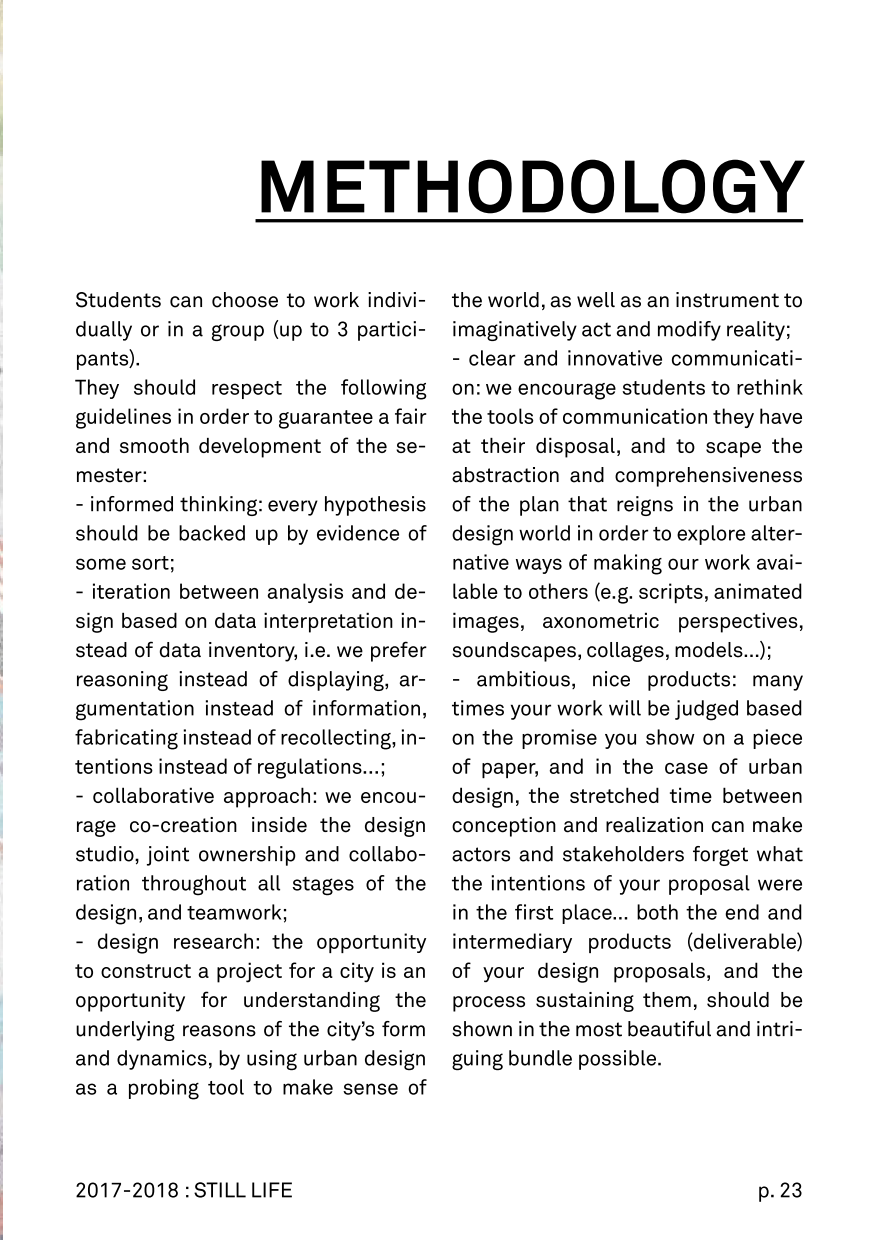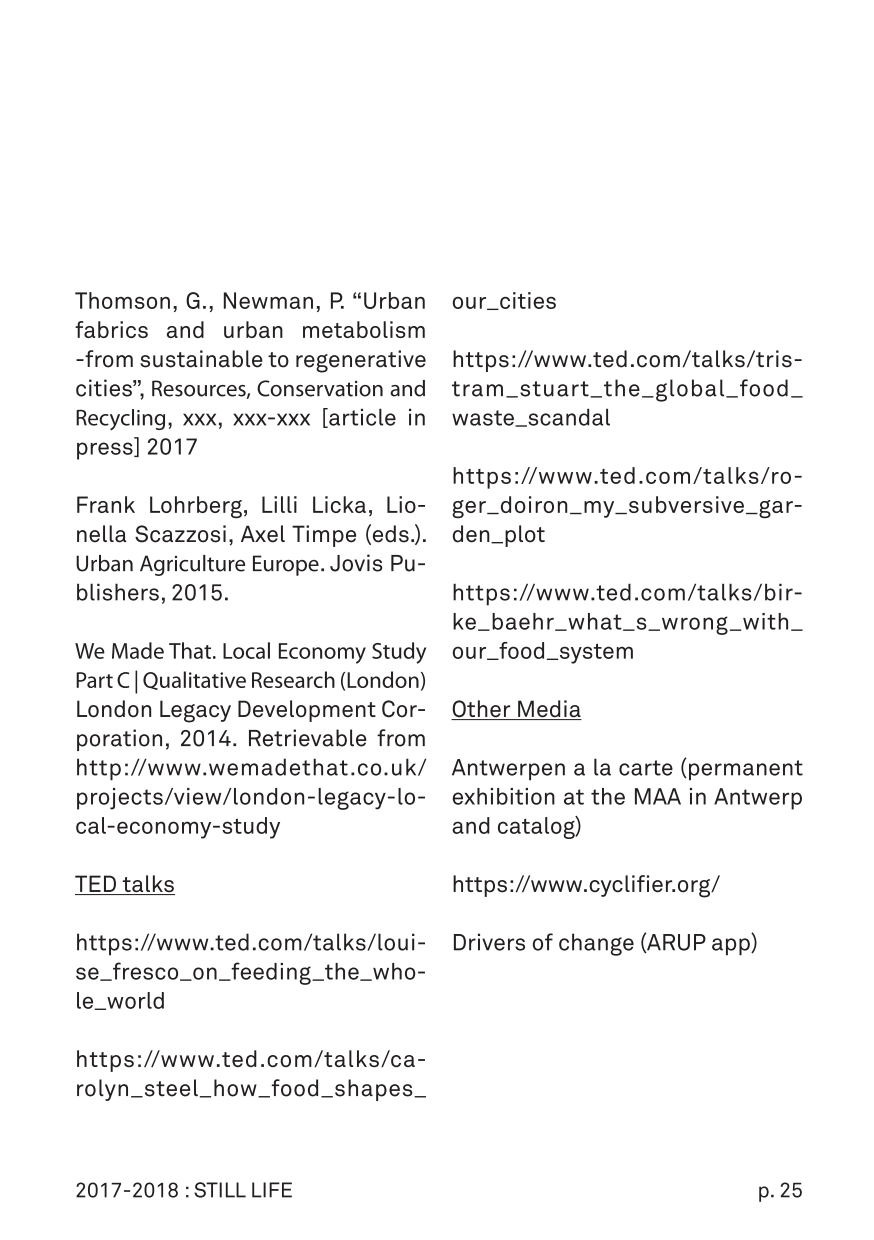Still Life
Our focus is the city, mainly Brussels but without excluding any place. Cities are complex places where the welfare of the whole population depends on sophisticated systems of production and delivery. While a village could get by with a road and a groceries' store, the city needs a smoothly working public transport system, and a comprehensive road network that allows a complicated logistical chain to bring foodstuff to its citizens and to collect and manage the waste they generate. This sheer technical and logistic complexity, that combines engineering systems and economic mechanisms with political decision-making, has come to replace our historical and rather immediate connection to the food system by breaking out its endless cycles into man-made, linear events. The city has in turn been associated to unsustainable consumption practices, responsible to a great extent for the application of environmentally harmful agriculture techniques and human exploitation here and elsewhere.
This semester we will attempt to review our connection to the food system by diving into a particular place: the morning market in Brussels, located along the northern edge of the Willebroeck Canal traversing Brussels, as an enclave between the Avenue de Vilvorde and the North-South railway corridor. The morning market spans 15 ha and houses around 130 wholesalers selling fresh products (vegetables, fruit, meat, fish, etc.) to retailers and restaurants through Belgium and Northern France. The morning market (MABRU) is adjacent to the European Center for Fruit and Vegetables (CEFL), an import-export distributor of fruits and vegetables for supermarkets. Together, the daily volumes traded within both premises can reach 3.000 tons. The location of MABRU has been contested since the drafting of the masterplan for Schaerbeek-Formation (Studio Secchi-Vigano, 2013), intended to redevelop the biggest railway yard in Brussels. The regional ambition is to displace the market some 3 Km to the North, to the Schaerbeek-Formation location and to make place for 3000 new apartments on the site they occupy at present. However this ambition was never followed through with, and MABRU has managed to prolong its concession on its current site till 2042. The question we wish to address goes beyond the exact location of the market (even is this aspect is deemed structural in the proposals students will formulate).The question of the future of MABRU is the opportunity to induce a more profound reflexion, to possibly free us or at least regenerate our pervasive dependency from a socio-ecologically unjust food system.
